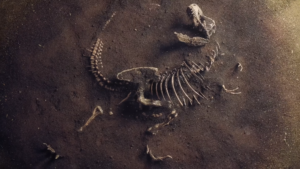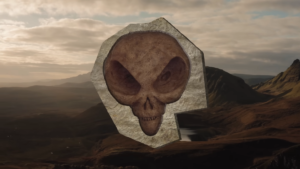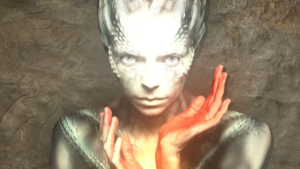In the ever-evolving tapestry of Earth’s history, a fascinating hypothesis challenges our conventional understanding of human civilization. “The Soran Hypothesis” proposes the existence of an advanced society predating humans by millions of years, leaving behind elusive traces in the geological record. This theory, although speculative, invites us to ponder the possibility of a forgotten era that shaped the planet in ways both profound and mysterious.

The narrative begins by exploring the transformative impact of human civilization on society, from technological advancements to the influence of the internet. Delving into the realm of conspiracy theories, the article playfully touches on unconventional beliefs, including the notion that Earth was once governed by shape-shifting, blood-drinking aliens.
The Soran Hypothesis takes center stage, challenging the assumption that humans were the first advanced civilization on Earth. Named after the intelligent reptiles from the fictional universe of Doctor Who, this hypothesis questions how we would recognize evidence of an ancient civilization that vanished millions of years ago.

The article explores the limitations of traditional archaeological methods in identifying traces of ancient civilizations. It emphasizes the transience of human structures over geological timescales, making it challenging to unearth evidence of past cultures.
The discussion shifts to the fossil record and its inherent biases, highlighting the rarity of fossilization and the limitations in capturing the diversity of ancient life. The article poses thought-provoking questions about the possibility of an intelligent species evolving in the distant past, challenging our anthropocentric view of evolution.

Drawing parallels between the ongoing changes wrought by human activity and potential technosignatures in Earth’s rocks, the article introduces the concept of the “human era.” It speculates on how future civilizations might interpret our impact on the planet, using the Paleocene-Eocene Thermal Maximum as a geological precedent.

While acknowledging the speculative nature of The Soran Hypothesis, the article concludes by emphasizing its role as an intriguing thought experiment. It encourages readers to consider the vastness of Earth’s history and the potential for undiscovered chapters waiting to be unveiled beneath our feet. In the quest for understanding our planet’s past, The Soran Hypothesis serves as a captivating exploration into the unknown realms of ancient intelligence.




